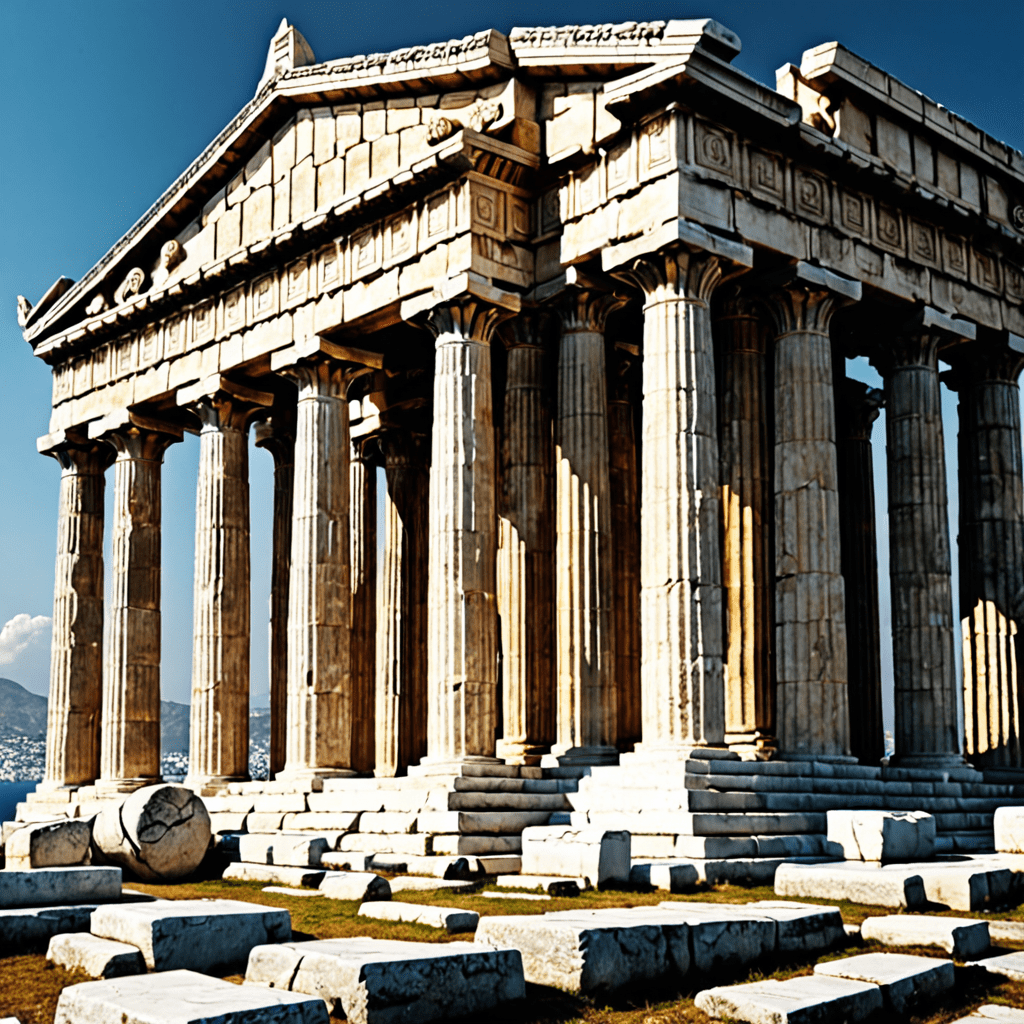The Symbolism of Temples in Greek Mythology
The Significance of Temples in Greek Mythology
In ancient Greek culture, temples held profound significance beyond just being places of worship. They were considered the dwelling places of gods and goddesses and served as the focal point of religious rites and ceremonies. Temples were built to honor specific deities, each representing various aspects of life, nature, and mythology.
Architectural Symbolism in Greek Temples
The designs and structures of Greek temples were not merely functional but were rich with symbolism. The architecture itself conveyed deeper meanings related to the gods they were dedicated to. For example, columns were often representative of the pillars holding up the world or symbolizing strength and stability—qualities associated with the deities worshipped in the temples.
The Relationship Between Gods and Temples
In Greek mythology, temples were seen as the earthly abodes of gods and goddesses. It was believed that the physical temple structure provided a link between mortals and immortals, allowing for divine presence and intervention in the human realm. Temples were where worshippers could offer sacrifices, prayers, and seek guidance or blessings from the deities.
Rituals and Offerings at Greek Temples
Various ceremonies and rituals were conducted in Greek temples to honor the gods. Offerings such as food, wine, incense, and precious items were presented as symbols of devotion and gratitude. These rituals were believed to strengthen the bond between the worshippers and the deities, fostering goodwill and divine favor upon the community.
In conclusion, Greek temples in mythology were not just physical structures but were imbued with symbolic meaning, acting as conduits connecting mortals with the divine realm. The architectural details, rituals, and beliefs surrounding these temples reflected the complex and intricate relationship between gods and humans in ancient Greek culture.
FAQ: The Symbolism of Temples in Greek Mythology
What role did temples play in Greek mythology?
Temples in Greek mythology symbolized the connection between humans and gods. They served as sacred spaces where rituals, offerings, and prayers were made to honor and communicate with deities.
Were specific gods associated with certain temples?
Yes, each temple in Greek mythology was dedicated to a specific god or goddess. For example, the Parthenon in Athens was dedicated to Athena, the goddess of wisdom and warfare.
What did the architecture of temples symbolize?
The architecture of Greek temples often reflected the qualities and attributes of the deity they were dedicated to. For instance, temples of Apollo, the god of light and music, featured columns that symbolized harmony and beauty.
How were temples used in religious ceremonies?
Temples were central to religious ceremonies in Greek mythology. They were places where priests and worshippers gathered to perform rituals, sacrifices, and festivals to honor the gods and seek their favor.
Did temples serve any social or political functions?
In addition to their religious significance, temples also played a role in Greek society and politics. They were centers of communal gatherings, education, and sometimes even served as treasuries or places of refuge during times of conflict.





